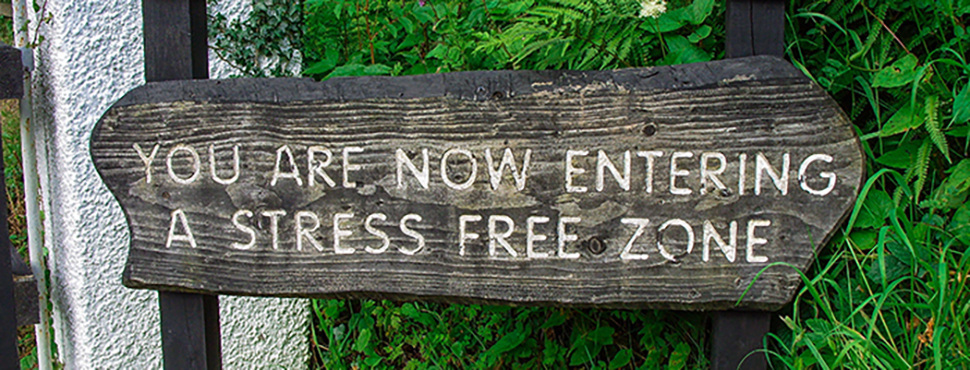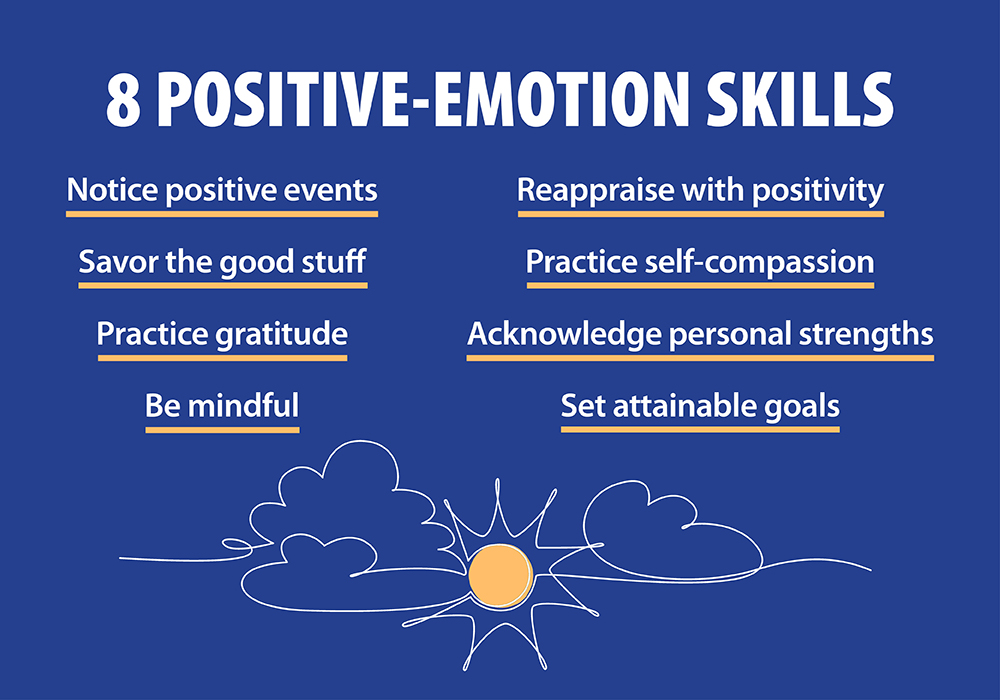Building Professional Sustainability: Small Habits to Improve Your Ability to Cope with Stress

Your ability to stay grounded and maintain a positive mindset can be taxed when confronted with consistently elevated levels of stress from professional or personal pressures. Recent research published in the journal Chronic Stress found that when perceived responsibility to meet external expectations remains high over time, it can lead to emotional exhaustion and burnout. The effects were particularly strong when individuals viewed their work demands as overwhelming. Under these conditions, optimism and resiliency become significantly more strained, as mental and emotional resources are depleted by the pressure to perform.
Build a Resilience Framework
How can planners strengthen their ability to adapt and recover in the face of adversity? It is essential to view resilience not only as a professional skill but also as a personal practice. Staying engaged and committed to meaningful work when our capacity for mental effort is limited requires intentional strategies to help preserve energy, focus, and emotional well-being.
An effective framework for building resilience comes from psychologist Dr. Judith Moskowitz, vice chair for scientific and faculty development in the Department of Medical Social Sciences at Northwestern University Feinberg School of Medicine. Her research has provided strong evidence that small, intentional shifts in how we process daily experiences can dramatically improve our ability to cope with stress.
Eight Positive-Emotion Skills
Through her resilience challenge study conducted last fall, Moskowitz taught eight evidence-based "positive-emotion skills" that lift the mood, buffer stress, and build the psychological resources we need to keep going.

Eight positive-emotion skills. Illustration by Catherine Bixler
1. Notice positive events
Positive moments happen even on the worst days, whether it's a kind word or a single task accomplished; acknowledge them as they happen.
2. Savor the good stuff
Take a moment to hold space for the positive moments, share with a friend, or record them through photos or journaling so you can revisit them.
3. Practice gratitude
Feeling appreciation for small wins and sharing that gratitude with colleagues, friends, and family can lift your mood and shift your perspective.
4. Be mindful
When stress builds, hit pause and be present with yourself. Practicing box breathing can help you to gently bring your focus to the here and now.
5. Reappraise with positivity
When things don't go as planned, try to find the silver lining; what have you learned, and what new possibilities have opened up?
6. Practice self-compassion
We all experience struggle; be kind to yourself.
7. Acknowledge personal strengths
What are your strongest skills and personal qualities? Celebrate them!
8. Set attainable goals
Knowing your strengths can help you create achievable goals; even the smallest milestone has meaning and can give you momentum.
Experiment, Practice, Adapt, Restore, Repeat
Moskowitz encourages people to experiment with a range of strategies and stick with the ones that feel most doable. She advises, "Pick one or two to practice consistently; if that stops working at some point, go back to the toolbox and try another one." This framework is a flexible, nonjudgmental approach that helps remove the pressure of "getting it right."
Above all, these strategies must be implemented not only while on the clock but also off. Consistent sleep, movement, and connection will set the stage for sharper thinking at work; practicing gratitude for small wins and everyday moments will strengthen our foundation for resilience. That personal reserve then spills into our professional life, allowing for greater capacity to navigate challenges.
"Part of building up your own reserves of well-being is so that when the negativity comes at you, and it will, no matter what role you're in, it doesn't affect you as much, you can stay more balanced."
— Dr. Judith Moskowitz, Northwestern University
These eight skills are simple enough to incorporate into a daily routine and powerful enough to help us stay grounded, focused, and resilient.
Applying Resilience Strategies to Planning Work
The eight positive-emotion skills outlined by Dr. Moskowitz offer tools that can be easily woven into daily planning tasks, helping you maintain emotional balance. Here are ways planners can apply these strategies to their daily work:
practice Emotional Regulation
In public-facing roles, emotional regulation matters. It is not unusual to have to manage conflict as a planner or navigate a wide range of emotions, perspectives, and concerns from the public, particularly when proposed changes affect deeply personal or sensitive community issues. While it's important to remain professional and approach these situations with empathy, how we conduct ourselves in these moments can have a powerful effect. There's a long history of research showing that if you tend to have a more pleasant facial expression, even if you're talking about negative things, strangers are more likely to rate you as someone they like, and someone they want to help, Moskowitz says.
spread positivity
If the people around you are coping better or are more resilient, you will also do better. The reverse is also true: when stress, negativity, or burnout dominate a team environment, it can lower morale, increase emotional strain, and make it harder for individuals to manage their well-being. But when even one person brings positive energy into a space, it can create a ripple effect, helping others regulate their own stress responses and building a more connected, resilient workplace culture.
celebrate small wins
Long timelines require long-term emotional strategies. Planners are accustomed to tackling large, complex projects that unfold over months or years, and waiting to feel successful only at the end of a project can be emotionally draining. Moskowitz emphasizes the importance of enjoying "every single small win along the way... [don't wait] until you've completed the project to celebrate."
Planners can track success by identifying and recognizing incremental progress, like finishing a draft, submitting a proposal, reaching a community engagement milestone, or simply making it through a tough week. These moments of progress deserve to be acknowledged and savored.
Dr. Moskowitz's research demonstrates that resilience can be actively strengthened through simple, intentional practices. These skills can help you maintain balance and clarity, even amid pressure. Building resilience supports your well-being and can have a profound positive impact on those around you.
Additional Resources
"Get Outside! Improve Your Mental Health and Well-Being," APA blog
"Embracing Conflict: Honing Your Conflict Management Skills," APA blog
Empathy, Equity, and You: Stories, Skills, and Practices, Passport course
Leading with Empathy, Passport course
Top image: Shutterstock - Nicky McBride
ABOUT THE AUTHOR


